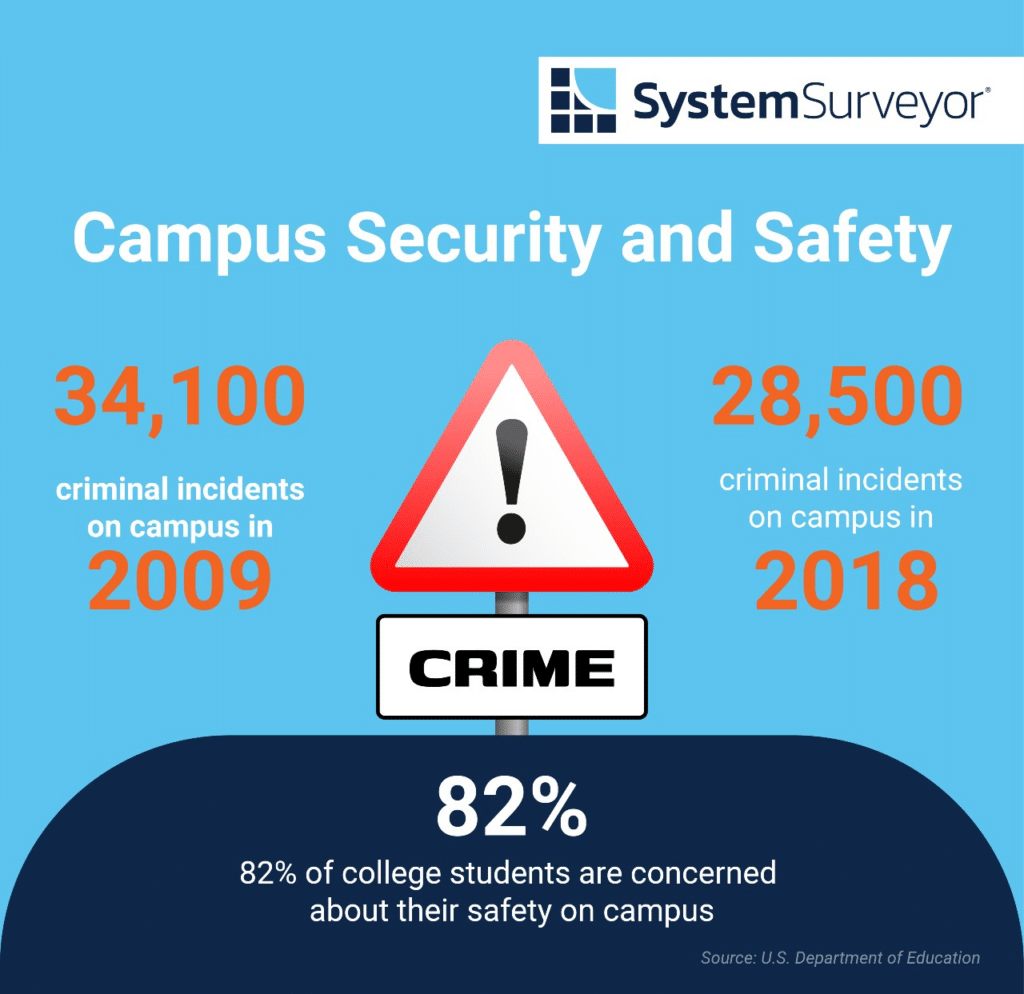When it comes to protecting college campuses, schools must face difficult decisions in selecting the right security solution to protect their students. With so many options available–from law enforcement officers, to advanced technology, or even campus-hired private security guards–university administrators and campus safety teams should consider each unique approach carefully when deciding what type of protection best suits their needs. In this blog article, we will ask: is in-house campus security the right choice for your school?
The Campus Safety Scenario
With a college or university campus of thousands of students and staff, things can become very complex, very quickly–especially if there is a security breach anywhere. Whether it’s a potential theft or a threat to student or staff safety, the outcome depends largely on how quickly and efficiently you can respond.

But is keeping your campus security in-house the right choice, or should you consider a third-party option? The answer may come down to how much control you want and are able to retain–and how quickly you can respond to potential security breaches and threats. The right decision can go a long way in helping you prevent losses, and keep your campus and its students secure.
To decide whether to keep your security in-house or to work with a third party, consider these questions:
1. How Quickly Can You Respond to Threats?
Letting go of some control doesn’t have to mean letting go of your high standards. If you entrust your security to a third-party provider, their service level agreements should guarantee excellent response and resolution times, monitoring center availability, and speeds at which they notify you of incidents or emergencies. If you’re happy with your response as it stands, then a third-party option may not be necessary. But if you want to become more efficient, this could be the fastest and most practical way to achieve your aims.
There’s no doubt that in-house security gives you more control across the board. But working with third parties can also give you similar levels of control with less of the legwork and upkeep–and oftentimes, at a very competitive cost.
2. How Much Can You Handle Alone?
Do you have the infrastructure and technology in place to monitor security across the entire campus? If you’ve got the staff and resources, as well as a well-oiled process for training and implementing security measures in-house, you’re on stable footing. But what about a campus without the right infrastructure or perhaps even outdated security systems?
That’s where third-party monitoring solutions can keep your security up to date, and seamlessly monitor all of your fire and other alarms, access control systems, security alarms, and video surveillance–as well as provide in-depth analytics so you can understand your security posture.
3. Do Your Systems Work Together?
Some campus security teams are still juggling multiple systems and software, which makes it hard to get a big-picture overview of security vulnerabilities. With dozens of systems and monitors to keep track of, it can be hard to focus on what matters–especially in a crisis.
Colleges and universities can benefit from streamlined, well-integrated systems that “talk” to one another and can work as one. Integrated security systems can provide valuable data about your risks, streamline your operations, improve the speed of your real-time response, and help you avoid false alarms.
You’ll have to judge whether your in-house team and systems are already working seamlessly together, or whether that’s still an area for improvement. If you want to bring physical security, safety systems, and cybersecurity together in one place–and customized exactly to your needs–then a good solution may be doing it yourself. Either way you choose to go, it’s worth avoiding headaches and missteps by integrating all the sensors, security devices, monitors, and systems your campus requires.
4. What’s the Cost Difference?
Many colleges and universities in the United States are under tough budget constraints and need to work smart wherever possible. This means increasing efficiency and doing “more with less,” whether that’s reduced staffing or tighter budgets. Having an integrated system can boost efficiency and make it possible to do much more, with much less.
Sometimes it’s even better to bring in a new system that will save money and resources in the long run, rather than keeping an old system chugging just because it’s easier (and perhaps cheaper in the short run) to stick to the status quo.
Making the Right Decision on Campus Security
So what’s the right solution? Your answers above, combined with a frank evaluation of your security risks, should point the way forward. Whether you choose to keep your security an in-house operation or to lean on a third-party monitoring service, you have options.
If you decide to boost your campus security with an integrated security monitoring solution, Bold Group can help with expert advice, solutions, and implementation. For example, Manitou security monitoring software can help you streamline your alarm monitoring operations and comes with a wide range of integration options.
For companies like Bold Group, security monitoring is a singular focus, so you can depend on having a highly-certified, qualified, and streamlined monitoring service that scales to your needs and can adapt to changing situations.
